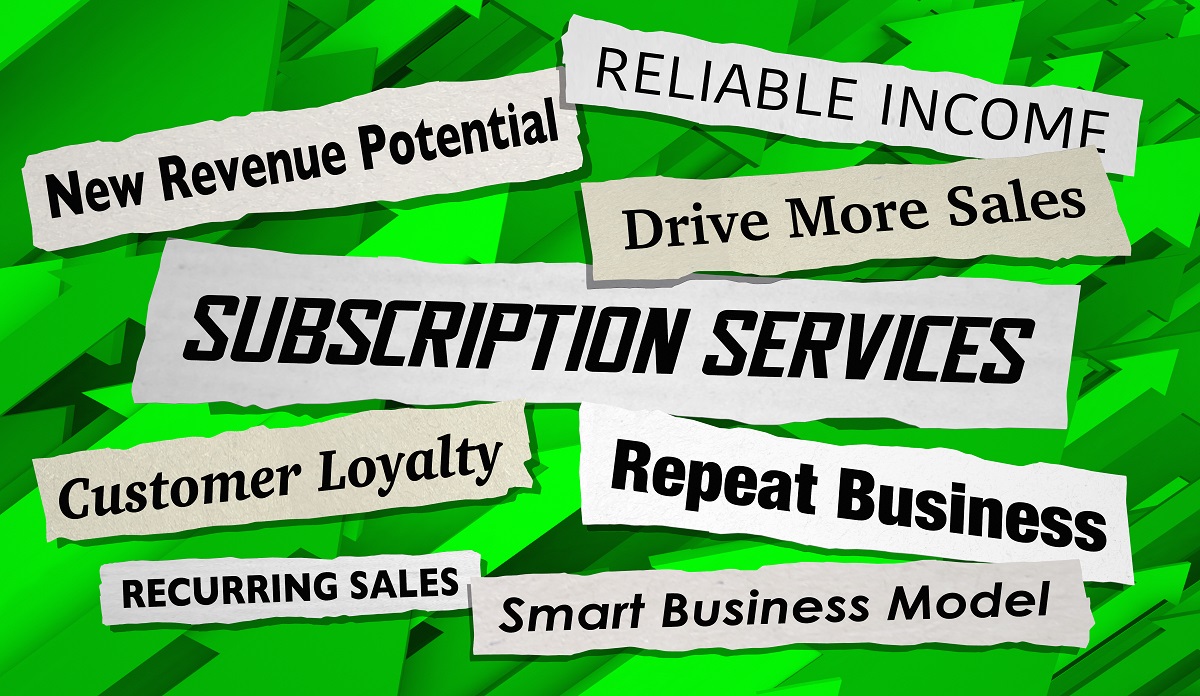Pro AV industry groups have been clamoring for several years to convince you to start selling your bespoke AV installations to your customers in an as-a-service model to benefit both you and your customers.
Now, after your customers saw firsthand how flexibility in how they pay for technology during the COVID-19 pandemic, you should really start listening.
Recurring revenue agreements and offering monthly payment options not only gives your customers added flexibility and the ability to spread large payments over a long period, but also provides your integration firm with recurring monthly revenue that you can count on when new business is slow.
Pro AV Adoption Increases
According to NSCA, the pro AV world is making progress in adopting this concept, but many integration firms still aren’t making a concerted effort to offer AV-as-a-service or managed services.
Tom LeBlanc, director of industry outreach and media channels at NSCA, said during a recent webinar that the percentage of revenues derived from recurring sales as an average are now around 17%, up from the 11% in 2018.
NSCA’s data also suggests that it’s much easier for larger companies to make the shift to recurring revenue business models, as companies doing more than $20 million in revenue have the lowest percentage of non-recurring revenues.
Other NSCA data suggests that most companies with successful recurring revenue programs offer service contracts, managed services or AV-as-a-service.
Although the pro AV industry is still working out the kinks when it comes to service-based revenues, preliminary results suggest that these models are beneficial to the bottom line, as 52% said it significantly improved their bottom line, and 43% said it marginally improved their bottom line, according to the NSCA data.
Flexibility for customers after COVID-19
Forgive this old tired trope often associated with selling service-based plans, but think of how you pay for services like content streaming. Rather than buying a DVD or CD, you pay a monthly subscription fee that doesn’t tie you into owning any products that you may not use several years from now.
To apply that to the current state of pro AV, think about how your customers are currently evaluating their real estate and office needs. According to Tyler Ebnet, vice president of sales at Iowa-based Communication Engineering Company, many are matching up their technology subscriptions with their real estate leases because they may plan on moving or going fully remote.
“As you look at managed services and as-a-service contracts, this gives them flexibility,” Ebnet said during the NSCA webinar.
On a related note, many companies are still having a hard time coming up with funds for capital expenditures as they recover from the pandemic-induced downturn. By moving their AV technology into the operational budget, they can plan ahead and implement an easier-to-manage budget process.
Ebnet helped CEC roll out a new managed services program at the beginning of 2020 that not only helps customers afford technology, but also provides them with a technology roadmap to help them stay on the cutting edge of technology and avoid missing necessary upgrades.
“Definitely during the pandemic, we had more conversations about this than we ever thought just because of that uncertainty,” Ebnet said.
Getting started isn’t as hard as you think
Integrators starting to develop a managed services or as-a-service program tend to get disappointed when these programs don’t yield immediate results or when customers don’t want to purchase technology that way, but your job is to first give them that option.
In an April interview with Commercial Integrator, Ebnet said selling managed services means selling predictability, uptime and a quick response, which necessitates developing a strong service group.
This change also requires changing the mindset and strategy of your sales staff, but the most important hurdle is changing how the customer thinks, said Ian Pugh, director of strategic partnership at GreatAmerica Financial Services, an NSCA partner.
According to Pugh, not every customer will purchase technology via a monthly payment, service-based plan, but they first need to be aware of that option.
“Your objective is to provide optionality,” Pugh said. “Your customers don’t know that they have options until you education them.”
Consider how many potential customers didn’t purchase your solutions because they couldn’t come up with enough capital, or maybe they opted to piecemeal an AV solution together because they couldn’t splurge for a comprehensive system.
Putting buzzwords like managed services aside, what’s really important is how providing customers optionality will likely lead to more business and more revenues for your company, Pugh said.
“And the question you have to ask yourself as a business leader and business owner on the call is, ‘If you provided your customers more options, what is the positive impact that would have in your company, when you sell things faster? Will the project be bigger?’”










